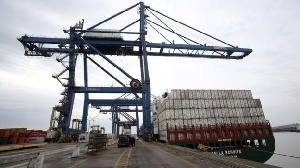African governments must be wary of the European Union’s Economic Partnership Agreement (EPA) agenda, which has been designed to keep African countries as perpetual suppliers of raw materials and erode efforts at industrialisation by the continent.
“Apart from threatening the food security and livelihoods of smallholder farmers, the EPAs would also thwart government’s ability to use procurement as a tool for social change.
“Besides, it will also take away the policy space that is necessary for government to direct foreign investors to areas critical for national development,” Mr. Tetteh Hormeku, Head of Programmes, Third World Network (TWN)-Ghana, said in Accra.
Making a presentation under the topic ‘Trade Policy and Industrial Development -- The Case of the Economic Partnership Agreements (EPAs)’ at a public lecture organised by the Economic Justice Network (EJN), Mr. Hormeku stated that already liberalisation has led to uneven competition as the EU’s unwillingness to abolish agricultural subsidies has led to the demise of many African producers.
“If the EPAs come into effect, countries will experience a catastrophe. Signing to it will cover a large area of trade in goods and services.
“The EU demands 80 percent tariff liberalisation; and the abolishing of export tariffs would impact negatively on local producers, consumers and government revenues,” he said.
The EU is seeking, under the EPAs, reciprocal trade arrangements between it and the African, Caribbean and Pacific (ACP) countries to replace the non-reciprocal and preferential trade agreements it offered under the Cotonou Agreement.
Ghana, Cote d’Ivoire and Nigeria initialled separate interim EPAs with the European Union (EU) four years ago, ostensibly to end uncertainty and protect a very small group of exporters who depend almost exclusively on the EU market -- as their products would have attracted additional tariffs upon expiration, in December 2007, of the preference regime for some Ghanaian and Africa, Caribbean and Pacific (ACP) exports.
The interim EPA is explained as a temporary measure meant to alleviate specific issues of countries pending harmonisation and completion at the ECOWAS level.
Mr. Gyekye Tanoh, Head of Economic Unit at TWN, said: “The interim EPA is onerous and indeed inimical to the country’s development and to the region; yet government is threatening to make it a permanent agreement.
“The IEPA, as an additional trade regime, will further fragment and eventually derail harmonisation of West Africa’s regional position and integration,” Mr. Tanoh said in a recent interview in Accra.
Business News of Monday, 8 October 2012
Source: thebftonline
‘Be wary of EPAs’
Opinions











